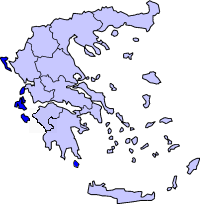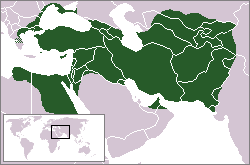ハンナ・アレント ”On Revolution” 『革命について』
志水速雄訳、ちくま学芸文庫
Freedom as a political phenomenon was coeval with the rise of the Greek city-states. Since Herodotus, it was understood as a form of political organization in which the citizens lived together under conditions of no-rule, without a division between ruler and ruled. [1] This notion of no-rule was expressed by the word isonomy, whose outstanding characteristic among the forms of government, as the ancients had enumerated them, was that the notion of rule (the ‘archy’ from ----- in monarchy and oligarchy, or the ‘cracy’ from ----- in democracy) was entirely absent from it. The polis was supposed to be an isonomy, not a democracy. The word ‘democracy,’ expressing even then majority rule, the rule of the many, was originally coined by those who were opposed to isonomy and who meant to say: What you say is ‘no-rule’ is in fact only another kind of rulership; it is the worst form of government, rule by the demos.[2]
政治現象としての自由は、ギリシアの都市国家の出現と時を同じくして生まれた。ヘロドトス以来、それは、市民が支配者と被支配者に分化せず、無支配(ノー・ルール)関係のもとに集団生活を送っているような政治組織の一形態を意味していた(11)。この無支配という観念はイソノミアという言葉によって表現された。古代人たちがのべているところによると、いろいろな統治形態のなかでこのイソノミアの顕著な性格は支配の観念(君主政monarchyや寡頭制oligarchyのαρχειν――統治する――からきた"-archy"や民主政democracyのκρατειν――支配する――からきた"-cracy")がそれにまったく欠けている点にあった。都市国家は民主政ではなくイソノミアであると思われていた。「民主政」という言葉は当時でも多数支配、多数者の支配を意味していたが、もともとはイソノミアに反対していた人びとがつくった言葉であった。彼らはこういおうとしたのである。「諸君たちのいう『無支配』なるものは、実際は別の種類の支配関係にすぎない。それは最悪の統治形態、つまり、民衆(デモス)による支配である(12)。」
Hence, equality, which we, following Tocqueville’s insights, frequently see as a danger to freedom, was originally almost identical with it. But this equality within the range of the law, which the word isonomy suggested, was not equality of condition—though this equality, to an extent, was the condition for all political activity in the ancient world, where the political realm itself was open only to those who owned property and slaves—but the equality of those who form a body of peers. Isonomy guaranteed -----, equality, but not because all men were born or created equal, but, on the contrary, because men were by nature (-----) not equal, and needed an artificial institution, the polis, which by virtue of its ----- would make them equal. Equality existed only in this specifically political realm, where men met one another as citizens and not as private persons. The difference between this ancient concept of equality and our notion that men are born or created equal and became unequal by virtue of social and political, that is man-made, institutions can hardly be overemphasized. The equality of the Greek polis, its isonomy, was an attribute of the polis and not of men, who received their equality by virtue of citizenship, not by virtue of birth. Neither equality nor freedom was understood as a quality inherent in human nature, they were both not -----, given by nature and growing out of themselves; they were -----, that is, conventional and artificial, the products of human effort and qualities of the man-made world.
すなわち、トックヴィルの洞察にしたがってわれわれがしばしば自由にたいする脅威だと考えている平等は、もともと、自由とほとんど同じものなのであった。しかし、イソノミアのもつ言葉が示唆している法の範囲内におけるこの平等は、――たしかに政治的領域そのものが財産と奴隷をもつ者にだけ開かれていた古代世界においては、ある程度まであらゆる政治活動の条件ではあったが、――条件の平等ではなく、同輩者の一団を構成している人びとの平等であった。イソノミアは平等を保証したが、それはすべての人が平等に生まれ平等につくられているからではなく、反対に、人は自然において平等ではなかったからである。そこで人為的な制度たる法すなわち法律によって人びとを平等にする都市国家を必要としたのであった。 平等は、人びとが互いに私人としてではなく市民として会うこの特殊に政治的な領域にのみ存在した。この平等の古代的観念と、今日の平等の観念、つまり人は生まれながらにして平等であり社会的、政治的な人工の制度によって不平等にされているのであるという観念がどれほど異なっているか、いくら強調してもけっして強調しすぎることはない。ギリシアの都市国家の平等、すなわちイソノミアは都市国家の属性であって、人間の属性ではなかった。人間はその平等を市民になること(シティズンシップ)によって受けとるのであって、その誕生によって受けとるのではなかった。平等も自由も人間の本性に固有の質とは理解されず、そのいずれも、自然によって与えられ自然に成長するものではなかった。それは法律であった。すなわち約束ごとであり、人工的なものであり、人間の努力の産物であり、人工的世界の属性なのであった。
The Greeks held that no one can be free except among his peers, that therefore neither the tyrant nor the despot nor the master of a household—even though he was fully liberated and was not forced by others—was free. The point of Herodotus’s equation of freedom with no-rule was that the ruler himself was not free; by assuming the rule over others, he had deprived himself of those peers in whose company he could have been free. In other words, he had destroyed the political space itself, with the result that there was no freedom extant any longer, either for himself or for those over whom he ruled. The reason for this insistence on the interconnection of freedom and equality in Greek political thought was that freedom was understood as being manifest in certain, by no means all, human activities, and that these activities could appear and be real only when others saw them, judged them, remembered them. The life of a free man needed the presence of others. Freedom itself needed therefore a place where people could come together—the agora, the market-place, or the polis, the political space proper.
ギリシア人は、同輩者の間柄でなければだれも自由ではありえないと考えた。したがって僭主も専制君主も家長も、たとえ彼らが完全に解放されていて他人の意志に従っていないばあいでさえ、自由ではないと考えられた。ヘロドトスが自由を無支配と同一視したとき、その論点は支配者自身は自由ではないというところにあった。他人を支配することによって、支配者は彼らとのあいだで本来なら自由でありえた同輩者たちから自ら去ったからである。いいかえれば、彼は政治的空間そのものを破壊したのであり、その結果、彼自身にとっても彼が支配した人びとにとっても、もはや自由は存在しないのである。このようにギリシアの政治思想において自由と平等との相互結合が強調された理由は、自由が、人間活動のすべてではないにしろ、そのある部分に明示されているものと考えられ、これらの活動は他人がそれを見、それを判断し、それを記憶しているばあいにのみあらわれ、現実のものとなるからであった。自由人の生活は他人の存在を必要としたのである。したがって自由そのものには、人びとの集まる場所すなわち集会所、市場、都市国家など固有の政治的空間が必要であった。
「永久革命(パーマネント・レヴォリューション)」あるいはもっと正確にいえば永遠につづく革命(レヴォリュシオン・アン・ペルマナンス)という用語が(プルードンによって)つくられ、それとともに、「いくつかの革命というようなものは存在しなかった、存在するのは永遠につづくただ一つの同じ革命だけである(36)」という観念が生まれたのは、われわれの時代のことではなく、十九世紀の中頃のことであった。
[1] I am following the famous paragraphs in which Herodotus defines—it seems for the first time—the chief three forms of government, rule by one, rule by the few, rule by the many, and discusses their merits (Book III, 80-2). There the spokesman for Athenian democracy, which, however, is called isonomy, declines the kingdom which is offered him and gives as his reason: ‘I want neither to rule nor to be ruled.’ Whereupon Herodotus states that his house became the only free house in the whole Persian Empire.
(11) 私は、ヘロドトスが一人支配、少数者支配、多数者支配の三つの主要な統治形態を、おそらくはじめて規定し、その価値を論じている有名な一節に拠っている(Book III, 80-82)。その中で、アテネ民主政――といっても、それはイソノミアと呼ばれていたが――のスポークスマンは、差し出された王国を固辞して、その理由を次のようにのべている。「私は支配することも支配されることも望みません。」それについてヘロドトスは、彼の家が全ペルシア帝国でたった一つの自由の家になったとのべている。
[2] For the meaning of isonomy and its use in political thought, see Victor Ehrenberg, ‘Isonomia,’ in Pauly-Wissowa, Realenzyklopadie des klassischen Altertums, Supplement, vol. VII. Especially telling seems a remark of Thucydides (III, 82, 8), who notes that party leaders in factional strife liked to call themselves by ‘fair-sounding names,’ some preferring to invoke isonomy and some moderate aristocracy, while, as Thucydides implies, the former stood for democracy and the latter for oligarchy. (I owe this reference to the kind interest of Professor David Grene of Chicago University.)
(12) イソノミアの意味と政治思想におけるその使用法については、Victor Ehrenberg, "Isonomia," in Pauly-Wissowa, Realenzyklopadie des Klassischen Altertums, Supplements, vol. VII. とくに有益と思われるのは、トゥキュディデスの意見であろう(III, 82, 8)。彼は、派閥闘争において党派の指導者が、ある者はイソノミアを是とし、ある者は穏健な貴族政を主張しつつ、「りっぱに聞こえる名前」をもって自らを呼ぶものを好んだとのべている。そして、トゥキュディデスの教えているところでは、イソノミア派は民主政を、貴族政派は寡頭政をそれぞれ支持した(この指摘は、シカゴ大学のDavid Grene教授のあたたかい助言によるものである)。
(36) Theodor Schieder, "Das Problem der Revolution im 19. Jahrhundert," Historische Zeischrift, vol.170, 1950.
http://jprschaefer.blogspot.com/2006/04/freedom-and-equality.html
(前七七六年 第一回オリュンピア祭)
巻三
(前五二一年)
〔六八〕オタネス(1)はパルナスペスの子で、その家柄といい資産といいペルシア人のなかでは最上流に属する人物であった。
(1)オタネスはキュロスの姉妹に当たるカッサンダネを妻にしていたから、キュロスには義兄弟、カンビュセスには叔父に当たる。ペルシア名ウタナ。
〔八〇〕オタネスは、国事をペルシア人全体の処理に委ねるべきであるとして次のように述べた。
「しかし最も重大であるのは私がこれから申すことで、それは独裁者というものは父祖伝来の風習を破壊し、女を犯し、裁きを経ずして人命を奪うことだ。それに対して大衆による統治はまず第一に、万民同権(イソノミア)という世にもうるわしい名目をそなえており、第二には独裁者の行なうようなことはいっさい行なわぬということがある。職務の管掌は抽籤により、役人は責任をもって職務に当たり、あらゆる国策は公論によって決せされる。
されば私としては、独裁制を断念して大衆の主権を確立すべしとの意見をここに提出する。万事は多数者にかかっているからだ(1)」
(1)あいまいな表現であるが、国家の利害は民衆の利害に直結し、民衆あっての国家であるという意味であろう。
〔八三〕ペルシアに万民同権の体制を実現しようと熱意を燃やしたオタネスであったが、自分の説が通らぬこととなったとき一同にむかっていうには、
「同志の方々よ、かくては籤によってきめるか、あるいはその他の方法によるかはともかく、われらのうちのだれか一人が王になるほかはあるまいが、私にはそなたらと王位を争うつもりはない。私は人を支配することも、人から支配を受けることも好まぬからだ。そこで私は支配者の地位を断念するが、ただしそれには条件がある。私はもちろん私の子孫も代々にわたり、そなたらのうちなんびとの支配も受けぬということだ」
このようなオタネスの発言に対し、他の六人がその条件を承諾したので、オタネスは彼らの王位争いには加わらず、局外に立つことになった。今もなおペルシアにおいてオタネス家のみは相変わらず自由独立のままで、ペルシアの法律に背くことはしないが、自分たちが望まぬかぎりは王の支配を受けぬのである。
〔八四〕彼らはまず、七人のうちオタネス以外のだれかが王位についた場合、オタネスおよび彼の代々の子孫たちに、特権として毎年メディア風の装束(1)と、ペルシアにおいて最も貴重とされる品一揃えを与えることを決定した。彼らがこの贈与を定めたのは、オタネスが最初に蜂起を立案し、彼ら同志を糾合したという理由によるものであった。
(1)襞が多く長い豪華な衣装で、ペルシア高官の式服として使用されたもの。ペルシア王から恩賜品として賜わるのが常であった。
〔八八〕かくてヒュスタスペスの子ダレイオスは王に任ぜられ、アジアの諸民族は、先にはキュロス、後にはカンビュセスによる平定があって、アラビア人を除いてはことごとくダレイオスに臣従した。
より検証可能な時代に入ると、リムノス島がダレイオス1世の将軍オタネス (Otanes) によって征服されたことがわかっている。
http://ja.wikipedia.org/wiki/%E3%83%AA%E3%83%A0%E3%83%8E%E3%82%B9%E5%B3%B6
イオニア諸島 http://ja.wikipedia.org/wiki/%E3%82%A4%E3%82%AA%E3%83%8B%E3%82%A2%E8%AB%B8%E5%B3%B6

イオニア http://ja.wikipedia.org/wiki/%E3%82%A4%E3%82%AA%E3%83%8B%E3%82%A2
リムノス島
アケメネス朝 http://ja.wikipedia.org/wiki/%E3%82%A2%E3%82%B1%E3%83%A1%E3%83%8D%E3%82%B9%E6%9C%9D
